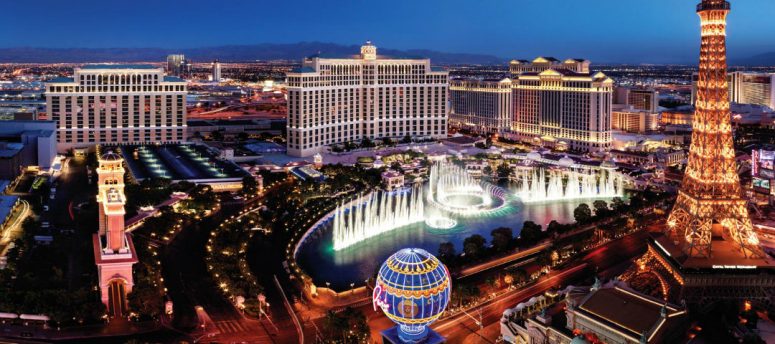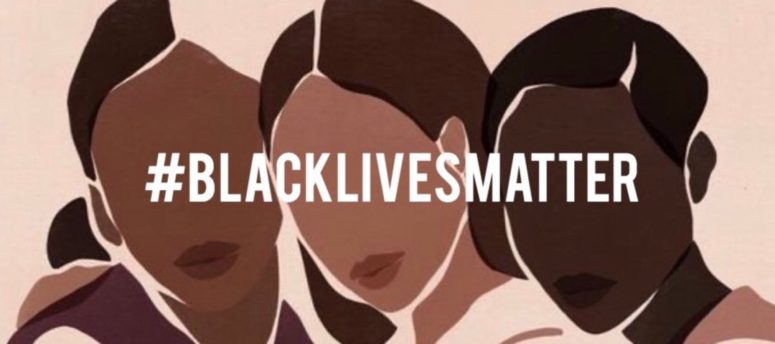Like many of you reading this, I woke up a couple days ago to news of another mass shooting in America. It was, and still is, devastating. It’s horrible to read about the innocent people killed by this senseless act of violence. It’s particularly upsetting now that I live in the States again, and had even talked with Dean in recent days about making a trip there when his friend comes to visit. It’s also so hard because I’ve been to Vegas, walked that strip and seen those casinos. But there is so much more to the story.
In the wake of the incident, the news still isn’t reporting on what led the 60-something-year-old white man to shoot at a crowd of people. He’s reported as being nice, wealthy and a regular Las Vegas visitor. People can’t imagine what could have led him to do something so heinous. And while I could write about gun control or how we need to work to prevent mass shootings, I’d be willing to wager (so to speak) that this might have to do with a problem at the heart of Las Vegas itself, a problem that is far larger than anyone seems to talk about and impacts almost every family I’ve ever talked to.
I can imagine this because I have seen it before in other gamblers. I am close to a couple gambling addicts, which means that I have spent time in casinos. In fact, I have visited casinos around the world and learned how very differently they handle gambling addiction. While some countries are better than others, the reality is that gambling addiction is far more insidious than some might believe, and can ruin lives just as thoroughly as alcohol or drug addiction.
I have seen people at casinos gambling away money that’s intended to pay rent or even feed their kids. In The Netherlands, this is dealt with in the best way I’ve seen anywhere in the world. Casinos are nationalized, which means that all income is put back into state coffers and used to fund social services to help those in need. Beyond that, Dutch casinos must be a certain distance apart, they aren’t treated as overall entertainment destinations, and they are serviced by social workers who will send people home if they visit too frequently or are putting their families at risk through regular gambling. Yes, some of you might read that and think it’s a symptom of a nanny state, but it’s the same kind of help that we would expect from a bartender who regularly sees someone getting too drunk to walk or becoming violent after having one too many. If a bachelor party or a group of friends wants to hit the casino for fun, they won’t even know about the social workers – they are just there to get to know the regulars and help people from falling down into a gambling abyss.
South Africa is a bit of a mixed bag when it comes to gambling addiction. The problem I encountered the most was that South African casinos are entertainment destinations. You can go there to take your kids to the arcade or movies, or for fine dining or theater. For those who aren’t interested in gambling, it’s just another entertainment destination, but for those who are easily lured into the slots or table games, it can make them even harder to escape as birthdays and parties are often organized at casinos. There is a ton of advertising for gambling support groups in South African casinos, and restaurants and stores do close, giving you a sense of time even as the lights permanently stay on, but the casino floor is still designed to be an exciting maze, one that lures you in and you’ll struggle to leave. They even offer childcare at South African casinos, and I can’t tell you how it breaks my heart to see tiny children sleeping in the play areas, waiting until late at night while a parent gambles away money.
Worst of all is Las Vegas, though. Las Vegas is the gambling capital of the world, and people go there to experience the glitz and the glamor. It is opulence at its peak, and people of all walks of life want to feel like they belong in that lifestyle. It’s beyond living a life of luxury – if that’s all people wanted, they could go to a 5-star resort and spend a fortune having a fabulous experience. No, people want to have the illusion that they have money to throw away, or perhaps, want to convince themselves that if they win enough they will be winners.
Despite having encountered all manner of gamblers, it’s hard to say what truly drives someone with gambling addiction. For some, it appears to be a kind of parallel thinking where they imagine that if they win the next hand, land the next jackpot, it’s a sign that they really are winners, really are lucky. For others, it seems to be all about the thrill of the gamble, the rush of adrenaline and the exhilaration when they win. Still others seem to get lulled into a kind of trance, particularly by slots or machine-based gambling, where the time and money melts away as they get mesmerized by the flashing lights and music.
Whatever the driving force, the reality is clear – gambling is highly addictive and just as destructive as any other addiction. We hear so much about alcoholism or the opioid crisis, but there is little to no coverage of gambling addiction, even as more and more states in the US legalize gambling, even as more and more casinos pop up in places that never had to worry about them before. From New York to Pretoria, new people are discovering casinos, and new families are being ripped apart and brought to the brink of ruin.
Is it something that can be regulated? Is it just like drinking, where bartenders are penalized if they keep serving someone who is clearly drunk? Should we penalize casinos that continue to encourage and reward gamblers, even as they lose all their money or bring heartbreak to friends and family? Can adding restrictions on casinos help prevent more acts of desperation, or is this something that no one is willing to regulate? Is the money just too good to actually care about anyone’s best interest?
Sure, there are plenty of people who can gamble and just have fun. Who can play a few hands of blackjack, or take part in a regular poker game, and never get to that point of desperation or despair. But for those who do get sucked in, who lose it all to the house, it’s a unique kind of sadness and anger, a kind that can lead to truly dangerous and destructive thought patterns. The world has now seen it on a grand scale in the recent events in Las Vegas, but those of us who were aware of it, have actually seen this horror for many more years, spread across many more families.
We can’t close all casinos any more than we can close all bars, nor should we. But more needs to be done at all levels, in all countries, to help people and families when addiction of any kind is involved.
DID YOU LIKE THIS POST?
If you like these words, please check out more of what I say on twitter and Facebook, and pics I take on Instagram and subscribe to my YouTube channel and follow me on Pinterest.
Also, please be sure to sign up to my carefully curated, crafted and infrequent newsletter.




